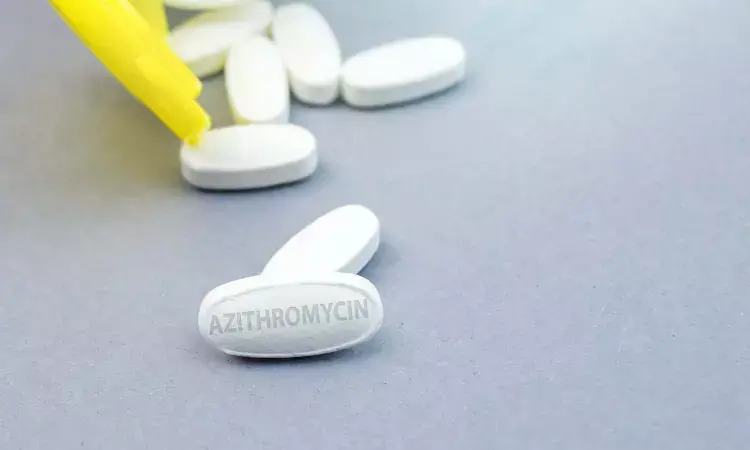- Home
- Medical news & Guidelines
- Anesthesiology
- Cardiology and CTVS
- Critical Care
- Dentistry
- Dermatology
- Diabetes and Endocrinology
- ENT
- Gastroenterology
- Medicine
- Nephrology
- Neurology
- Obstretics-Gynaecology
- Oncology
- Ophthalmology
- Orthopaedics
- Pediatrics-Neonatology
- Psychiatry
- Pulmonology
- Radiology
- Surgery
- Urology
- Laboratory Medicine
- Diet
- Nursing
- Paramedical
- Physiotherapy
- Health news
- Fact Check
- Bone Health Fact Check
- Brain Health Fact Check
- Cancer Related Fact Check
- Child Care Fact Check
- Dental and oral health fact check
- Diabetes and metabolic health fact check
- Diet and Nutrition Fact Check
- Eye and ENT Care Fact Check
- Fitness fact check
- Gut health fact check
- Heart health fact check
- Kidney health fact check
- Medical education fact check
- Men's health fact check
- Respiratory fact check
- Skin and hair care fact check
- Vaccine and Immunization fact check
- Women's health fact check
- AYUSH
- State News
- Andaman and Nicobar Islands
- Andhra Pradesh
- Arunachal Pradesh
- Assam
- Bihar
- Chandigarh
- Chattisgarh
- Dadra and Nagar Haveli
- Daman and Diu
- Delhi
- Goa
- Gujarat
- Haryana
- Himachal Pradesh
- Jammu & Kashmir
- Jharkhand
- Karnataka
- Kerala
- Ladakh
- Lakshadweep
- Madhya Pradesh
- Maharashtra
- Manipur
- Meghalaya
- Mizoram
- Nagaland
- Odisha
- Puducherry
- Punjab
- Rajasthan
- Sikkim
- Tamil Nadu
- Telangana
- Tripura
- Uttar Pradesh
- Uttrakhand
- West Bengal
- Medical Education
- Industry
Azithromycin no better than placebo among patients of LRTI with low procalcitonin levels: Lancet

A recent trial found that in adults with lower respiratory tract infections and lower procalcitonin concentration, the placebo was not non-inferior to Azithromycin for clinical improvement at day 5. This questions the necessity of antibiotics for clinical improvement and solicited adverse events for patients with lower respiratory tract infection and a low procalcitonin concentration. The trial results were published in the journal The Lancet Infectious Diseases.
Antibiotics are the frequently prescribed medications for Lower respiratory tract infections, despite a viral etiology in many of them. As there is uncertainty on the fact that antibiotics do not benefit patients with low procalcitonin concentrations with lower respiratory tract infection researchers compared the efficacy and safety of azithromycin versus placebo to treat lower respiratory tract infections in patients with low procalcitonin.
A randomized, placebo-controlled, double-blind, non-inferiority trial was conducted at five health centers in the USA between Dec 8, 2017, and March 9, 2020. Eligibility for inclusion into the trial included adults aged 18 years or older with clinically suspected non-pneumonia lower respiratory tract infection and symptom duration from 24 h to 28 days. Randomization of the participants with a procalcitonin concentration of 0·25 ng/mL or less was done (1:1), in blocks of four with stratification by site, to receive over-encapsulated oral azithromycin 250 mg or matching placebo (two capsules on day 1 followed by one capsule daily for 4 days). Masking of the participants, non-study clinical providers, investigators, and study coordinators were done for treatment allocation. The primary outcome was the efficacy of azithromycin versus placebo in terms of clinical improvement at day 5 in the intention-to-treat population. The non-inferiority margin was –12·5%. Solicited adverse events like abdominal pain, vomiting, diarrhea, allergic reaction, or yeast infections were recorded as secondary outcomes.
Findings of the trial:
- Of the 691 patients assessed for eligibility, 499 were enrolled and randomly assigned to receive azithromycin (n=249) or a placebo (n=250).
- In the intention-o-treat analysis, clinical improvement at day 5 was observed in 148 (63%, 95% CI 54 to 71) of 238 participants with full data in the placebo group.
- Clinical improvement at day 5 was seen in 155 (69%, 61 to 77) of 227 participants with full data in the azithromycin group in the intention-to-treat analysis (between-group difference –6%, 95% CI –15 to 2).
- The 95% CI for the difference did not meet the non-inferiority margin.
- Except for increased abdominal pain associated with azithromycin, solicited adverse events and their severity was not significantly different between groups at day 5 in the Azithromycin group (47 [23%, 95% CI 18 to 29] of 204 participants) compared with placebo (35 [16%, 12 to 21] of 221; between-group difference –7% [95% CI –15 to 0]; p=0·066).
Thus, the placebo was not non-inferior to azithromycin in terms of clinical improvement at day 5 in adults with lower respiratory tract infection and a low procalcitonin concentration.
Further reading: Tsalik EL, Rouphael NG, Sadikot RT, et al. Efficacy and safety of azithromycin versus placebo to treat lower respiratory tract infections associated with low procalcitonin: a randomized, placebo-controlled, double-blind, non-inferiority trial [published online ahead of print, 2022 Dec 13]. Lancet Infect Dis. 2022; S1473-3099(22)00735-6. doi: 10.1016/S1473-3099(22)00735-6
BDS, MDS
Dr.Niharika Harsha B (BDS,MDS) completed her BDS from Govt Dental College, Hyderabad and MDS from Dr.NTR University of health sciences(Now Kaloji Rao University). She has 4 years of private dental practice and worked for 2 years as Consultant Oral Radiologist at a Dental Imaging Centre in Hyderabad. She worked as Research Assistant and scientific writer in the development of Oral Anti cancer screening device with her seniors. She has a deep intriguing wish in writing highly engaging, captivating and informative medical content for a wider audience. She can be contacted at editorial@medicaldialogues.in.
Dr Kamal Kant Kohli-MBBS, DTCD- a chest specialist with more than 30 years of practice and a flair for writing clinical articles, Dr Kamal Kant Kohli joined Medical Dialogues as a Chief Editor of Medical News. Besides writing articles, as an editor, he proofreads and verifies all the medical content published on Medical Dialogues including those coming from journals, studies,medical conferences,guidelines etc. Email: drkohli@medicaldialogues.in. Contact no. 011-43720751




